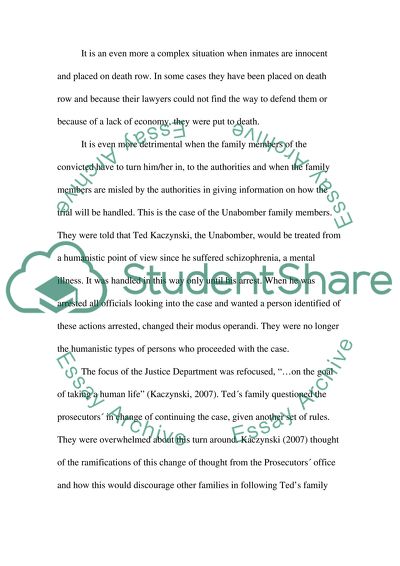Cite this document
(“How the Death Penalty Effects Family Essay Example | Topics and Well Written Essays - 2250 words”, n.d.)
Retrieved from https://studentshare.org/miscellaneous/1539986-how-the-death-penalty-effects-family
Retrieved from https://studentshare.org/miscellaneous/1539986-how-the-death-penalty-effects-family
(How the Death Penalty Effects Family Essay Example | Topics and Well Written Essays - 2250 Words)
https://studentshare.org/miscellaneous/1539986-how-the-death-penalty-effects-family.
https://studentshare.org/miscellaneous/1539986-how-the-death-penalty-effects-family.
“How the Death Penalty Effects Family Essay Example | Topics and Well Written Essays - 2250 Words”, n.d. https://studentshare.org/miscellaneous/1539986-how-the-death-penalty-effects-family.


